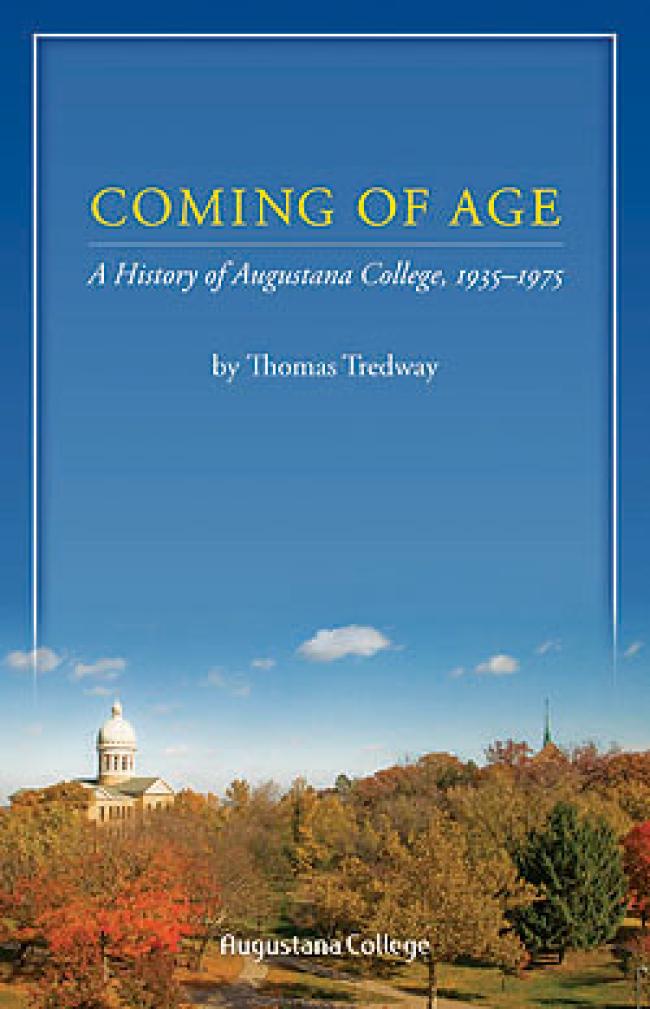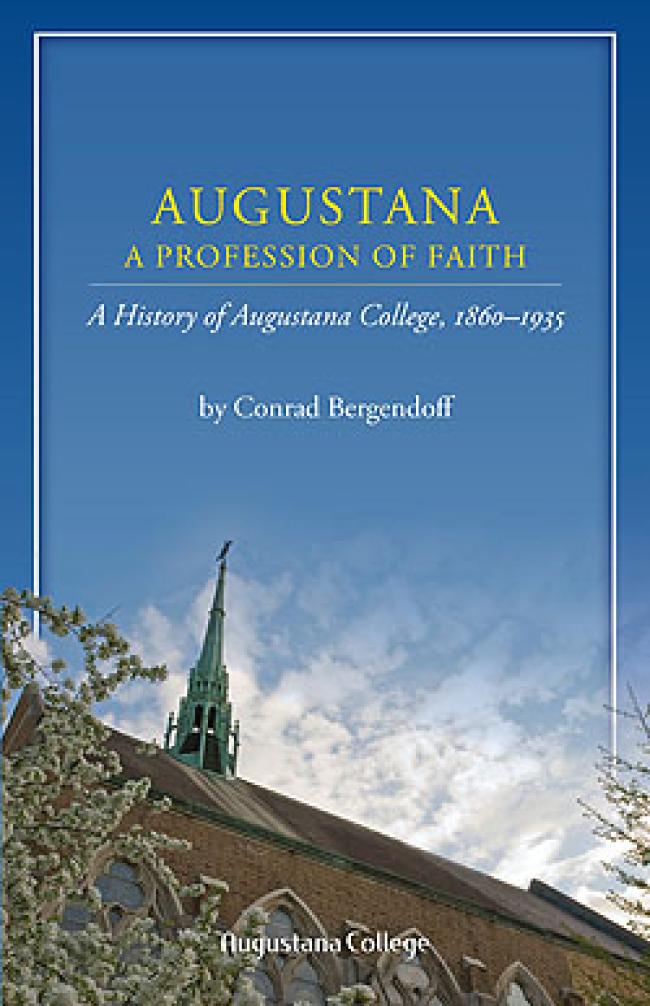Presidents pen histories of the college
(This story was written in celebration of Augustana's sesquicentennial in 2010.)
Two presidents of Augustana College have chronicled the history of the institution.
Conrad Bergendoff, president from 1935-1962, wrote Augustana: A Profession of Faith: A History of Augustana College, 1860-1935 in 1969. It has been reprinted this year in honor of the college's sesquicentennial.
Thomas Tredway, president from 1975-2003, followed with Coming of Age: A History of Augustana College 1935-1975 that has just been published in 2010.
Both books are available at the Thomas Tredway Library and are on sale at the bookstore in the College Center. Coming of Age is priced at $29.95 and A Profession of Faith is $19.95. The two books may be purchased together for $39.95. Online purchase is available through the college book store.
Coming of Age: A History of Augustana College, 1935-1975

Considering the nearly incomprehensible amount of change that occurred between 1935 and 1975 — politically, socially and intellectually — it's no surprise that radical transformation descended on college and university campuses across the country. And while Augustana College was certainly no exception, the change that occurred there during these years marked something more — a transition from insularity to openness, and a stepping out from the parochialism of its founders to both a world view and a national stage; in short, a coming of age.
In his Coming of Age: A History of Augustana College, 1935-1975, Dr. Tredway weaves a story about a community of scholars learning to take care of itself during the extraordinary challenges of global depression and world war. For those familiar with the college, he provides rich insight into the way the traditions of the school were preserved — and in some cases created — during the mid-20th century, all while giving depth and dimension to faculty and administrative leaders held dear by generations of students and faculty.
More broadly, Tredway's explorations of universal themes related to ethnicity and race, religion and social order — all within the microcosm of a small community opening itself to a much wider world — will resonate with students of history, sociology and the academy. Himself a historian who continued to teach during his remarkable 28-year tenure as Augustana's seventh president, Tredway is remembered fondly by graduates from the 1960s through the 1990s for his animated, finely detailed and always entertaining lectures. With humor and an eye for what matters, Tredway tells a captivating story of a college's coming of age.

Augustana ~ A Profession of Faith: A History of Augustana College, 1860-1935
In chronicling the first 75 years of Augustana College, Conrad Bergendoff — who from 1935 to 1962 served as the school's president — tells the stories of the highly motivated, deeply passionate people who built Augustana from shaky beginnings to an institution ready for the national stage it would assume during the course of the 20th century. In doing so, Bergendoff skillfully avoids resorting to either pretense or Providence while nonetheless conveying the purpose and sense of calling shared by Augustana's early leaders.
Names that are familiar to today's students and alumni only by their inscriptions on campus landmarks are brought to life: Andreen, Lindahl, Bartholomew, Carlsson and Fryxell are among the cast that helped build Augustana from a minuscule training academy for Swedish Lutheran pastors to an American college whose graduates would help shape the nation and world. Of particular note is Bergendoff's recounting of the longest tenure of Augustana's notoriously long-serving presidents, that of Gustav Andreen, who led the college from 1901 to 1935 and was in many ways the first modern college president Augustana had known (indeed, in some ways, a president decades ahead of his times).
As the title indicates, Bergendoff sees Augustana as the nexus of faith and learning, where each informs the other to the benefit of both. As such, A Profession of Faith remains a noteworthy addition to scholarship on the Lutheran understanding of higher education, and its interrelatedness with vocation, service and leadership.
— Kai Swanson
